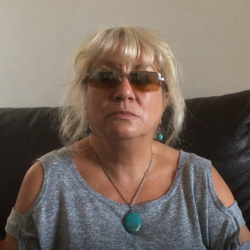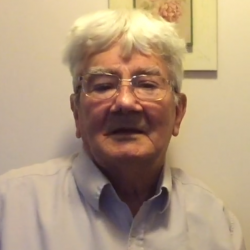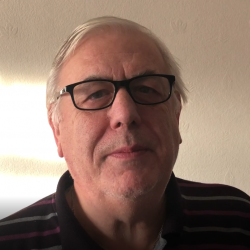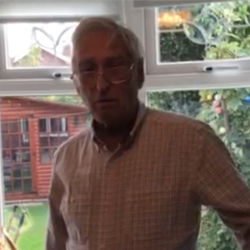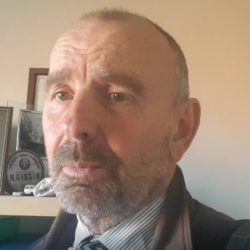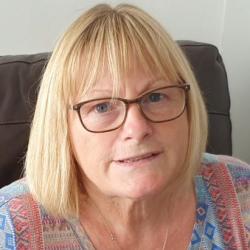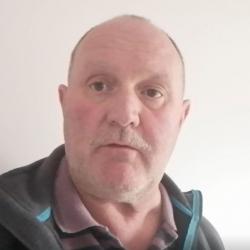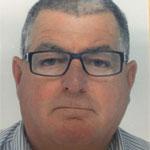Customer Video Testimonials
We have helped many people reclaim money lost on mis-sold investments and pensions. Watch some of our video testimonials below.
Amounts reclaimed for customers are before the deduction of our fee.
Susan Marsh from Merseyside got back £11,411 from Barclays
Susan went through a difficult time in the late 90s as she had to retire from her job on health grounds and then suffered the loss of her mother. Susan sold her mother’s home and staff at her local Barclays encouraged her to speak with a financial adviser when she received the sale proceeds.
She was advised to invest a lump sum of £20,000 into an ISA and a unit trust with Legal & General. When her investments came to an end she received back just over £16,500 resulting in a loss of around £3,500 on money which was very important to her. This was a very distressing experience for Susan.
We sent our claim to Barclays stating that it was wrong to recommend Susan should invest in the risky Growth Portfolio Trust. She was no longer working and would need access to her money making her investments totally unsuitable.
Barclays investigated the advice they had given to Susan nearly 20 years previously and agreed that it was not suitable for her at that time. We directed Barclays to calculate the position she would have been in if she had been given the correct advice and to add interest on top. As a result of our work Susan was delighted when Barclays offered her £11,411.
James Edgar from Glasgow got back £12,000 from Halifax
Mr Edgar had saved a lump sum which he held in a deposit account. He was encouraged to see a financial adviser from Halifax to discuss the best place to hold this money.
Mr Edgar had never invested before and was worried about taking risks with his money and investing in Stocks and Shares. Despite this he was advised to invest £25,000 into a Guaranteed Investment Plan as, although it invested in Stocks and Shares, it guaranteed the return of his £25,000 at the end of a 5 year term if the Stock Market fell. After waiting patiently for 5 years the value of his maturing investment was just £25,247.92 – not even making 1%. This was due to the financial crisis and credit crunch which occurred in 2008 – right in the middle of Mr Edgar’s investment.
We sent our claim to Halifax explaining that Mr Edgar should not have been advised to invest this much money into a product which could have earned nothing after 5 years, particularly as a first time investor. We directed Halifax to pay Mr Edgar what he could have earned if he kept his money in cash and add interest to this from when the investment matured in 2010.
Halifax investigated this claim and agreed with Goodwin Barrett. Even though Mr Edgar made a small gain of less than £250 our claim resulted in a payment to him of £12,059.
Kevin Heather from Essex got back £3,489 from Lloyds
After inheriting some money from a member of his family Kevin decided to take advice from his bank about investing it wisely.
Kevin had no previous experience of investing into stocks and shares and had limited savings at the time. He also had an outstanding mortgage. Despite this he was advised to invest £5,000 into a risky Stocks and Shares ISA by his financial adviser at Lloyds bank. He lost £550 when he cashed it in.
We made a claim on behalf of Kevin for a mis-sold investment and got him back £3,489 within a matter of weeks.
Dr Jasmine Murray from Reading got back £13,590 from Santander
Dr Murray and her husband had downsized their home and had money left over after buying their new house. They spoke with a financial adviser at Abbey National about the best options they had for their funds.
The couple had never invested money previously but were advised to put a lump sum into a complicated ‘Inscape’ portfolio. This contained shares from all around the world and would use ISA allowances each year.
We sent our claim to Santander arguing that Dr Murray and her husband should not have been advised to invest into the portfolio as they were taking too much risk, particularly as they were first time investors. It was also clear they were told to invest too much of their money.
After investigating our claim Santander agreed. They refunded Dr Murray the £6,000 that was lost and on top of this calculated what she could have earned had the money been left on deposit. This amount with additional interest resulted in a payment to Dr Murray totalling £13,590.
Kevin Corns from Dudley got back £6,000 from Halifax
In 1997 Kevin had built up a lump sum by saving regularly and his local Halifax branch suggested he speak with a financial adviser to discuss the options he had for his money.
Kevin was advised to invest £6,000 into a Personal Equity Plan (PEP) as the adviser told him that it was a tax free investment that could grow over the years. He had never invested before and happily agreed to do as the adviser recommended.
Kevin left the investment in place for almost 7 years before cashing it in and received back just £5,027 – losing almost £1,000. Kevin remembered the adviser telling him that he could potentially lose money and thought it was ‘just one of those things’. However, Kevin heard Goodwin Barrett’s ad on the radio and contacted us to see if this was something we could help with. We discussed Kevin’s personal and financial circumstances when he invested and believed that he had been wrongly advised. Halifax advised Kevin to invest into the UK Growth Fund which invested solely into shares. This was too high in risk for a first time investor and Kevin should have been advised to take a lower level of risk.
We submitted our claim to Halifax and explained why we felt Kevin was advised wrongly. They agreed and admitted Kevin should have invested in a fund with less risk and agreed to pay him £6,063 calculated in accordance with the regulatory guidelines.
Lisa Morris from Notts got back £42,000 from St James Place IFA
In 2007 Lisa and her partner Jason had built up a lump sum and were recommended to speak with a financial adviser from St James Place.
An adviser visited them at their home and the couple were advised to invest a total of £64,000 in ISAs and Unit Trusts. However, soon after the couple invested there was significant turmoil in the UK economy which resulted in the Stock Market being extremely volatile across this period. When Lisa and Jason cashed in their investments the following December they lost around 30% of the money they had invested.
Lisa heard Goodwin Barrett’s ad on the radio and contacted us to see if this was something we could help with. We discussed the couple’s personal and financial circumstances and found that they had been recommended to invest heavily into commercial property. This was too high in risk for clients who had never invested previously.
We submitted our claim to St James Place and explained why we felt Lisa & Jason were advised wrongly. The claim resulted in an award of £42,114 to the delighted couple.
Moira Armstrong from Nottingham got back £7,250 from Lloyds
Moira worked full time at Boots but also owned properties that she rented. She sold a rental property in 2000 and had plans to invest the sale proceeds into another.
When Lloyds noticed Moira’s money they contacted her and asked her to meet with a financial adviser. Moira explained her plans to the adviser but he recommended to Moira that she should invest some of her money into a Stocks and Shares ISA. She liked the idea that ISAs were tax free and so followed the advice and invested £7,000. However, Moira found that she needed to access her investment the following year in order to purchase a new property that had become available. When she did this she received back £5,100 resulting in a loss of almost £1,900 in just over a year.
Moira heard our radio ad and contacted Goodwin Barrett to see if we could help. Although Moira had no paperwork or details, we were able to get all the information we needed from Scottish Widows on her behalf.
Goodwin Barrett identified that Moira should not have been advised to invest any of her money at this time because of the plans she was making that meant she couldn’t keep her investment in place for the minimum 5 year term that was recommended. Additionally, her investment was placed into the American Growth Fund and the Worldwide Growth Fund which contained far too much risk for someone who had never invested before.
We sent our claim to Lloyds explaining why Moira was advised wrongly and after investigating her case they agreed with our findings. Moira got back a total of £7,264.
Tamara Gordon from Barnet got back £2,650 from Lloyds
Tamara had just started her career as a teacher in 2000 and wanted to put some money away for her future. She spoke with a financial adviser at Lloyds to discuss the best way for her to do this. She was advised to invest a total of £4,500 into a Stocks and Shares ISA. She was happy to do this as any growth the investment made would be free of tax. In addition she could also invest into the Environmental Fund which only invested into companies that made a positive contribution to the environment which was important to her.
Tamara kept her investment in place for a number of years, taking withdrawals when she needed to, and received back £4,260 in total, resulting in her losing money.
Tamara contacted Goodwin Barrett after seeing one of our ads online. We looked at the advice she was given and our experience recognised straight away that although the Environmental Fund was considered to be socially responsible it was also much higher in risk than many other funds. It was clear to us that as a first time investor this was not suitable for Tamara.
We sent our claim to Lloyds explaining that Tamara was advised wrongly to take this higher level of risk.
Lloyds investigated the advice they had given Tamara almost 20 years earlier and agreed with our findings. Lloyds calculated how much better off she would have been if they had advised her correctly and added interest on top. As a result of our work Lloyds paid Tamara £2,657.
Karen Elsworth from Leeds got back £2,980 from Halifax
Karen’s late mother lost her husband in 1996 and received a lump sum. An appointment was arranged with a financial adviser from Halifax to discuss the options she had with this money.
She was advised to invest a total of £6,000 into an Investment Bond and kept her investment in place for over 20 years. When it was cashed in the value had grown to £15,247.
Karen contacted Goodwin Barrett after seeing our online ad and asked if we could help as she knew her mother had invested but was unsure of the details. We wrote to Halifax and obtained the investment information and looked into the advice she was given. We found that she was classified as a ‘medium’ risk investor rather than the correct level of ‘low’ risk which would have been more suitable for an inexperienced investor.
We sent our claim to Halifax explaining that Karen’s mother was incorrectly advised to take this higher level of risk.
Halifax investigated the advice they had given in 1996 and agreed with our findings paying out £2,980 in compensation.
Raymond Nicholls from Sunderland got back £4,627 from Santander
Raymond Nicholls met with a financial adviser at Abbey National after he was made redundant in 1993. He wanted to ensure his money was in the best place after such a big change in his life.
He had never invested money previously but was advised to put a regular amount of £50 per month into a 10 year savings plan. After investing this amount for 10 years he had paid a total of £6,000 into the plan. However, because the money was invested in stocks and shares the amount he got back was just £5739.98, actually losing over £270 after a decade.
We sent our claim to Santander explaining that Mr Nicholls should not have been advised to take this risk with his savings, particularly as he was a first time investor.
Santander investigated the advice Mr Nicholls had received and agreed that it was not suitable for him at the time. We asked Santander to refund the money lost and calculate what returns could have been achieved if he had invested his money more appropriately. With interest on top the payment made was £4,627 leaving a delighted client with over £2,400 after settling our fee.
Matthew Tonge from St Helens got back £4,500 from RBS
Mr Tonge inherited a property after the passing of his step-father. He renovated the property before selling it and was encouraged to speak with a financial adviser when the sale proceeds were received.
Matthew had never invested money before but was advised to invest into a bond which was linked to the performance of the stock market. He was satisfied as this investment would guarantee the return of his capital at the end of a 5 year term.
However, Matthew required the money he had invested after less than 12 months as he had always planned to buy other properties to renovate and sell at a profit. When he cashed in his investment he had lost £2,300.
We sent our claim to RBS pointing out that Mr Tonge should not have been advised to invest into the bond as it was clear that he would not be able to invest for the 5 year term. The financial adviser did not take into account what Matthew wanted to do with his money.
After investigating our claim RBS agreed and paid Mr Tonge £4,500.
James Riley from Rotherham got back £14,286 from Royal London
Mr Riley had taken early retirement and received a lump sum which he was happy to leave in a savings account. He was encouraged to see a financial adviser from CIS to discuss his finances and they met at Mr Riley’s home.
Mr Riley and his wife had never invested money before but were advised to invest a total of £20,000 into a Stocks and Shares ISA and Unit Trusts within the UK Growth Fund. After only 3 ½ years the value of the investment had fallen significantly and when cashed in the couple lost almost £6,000.
We sent our claim to Royal London explaining that Mr & Mrs Riley should not have been advised to invest their money as he was retired and therefore taking risk with their money was wrong.
Royal London investigated this claim and agreed with Goodwin Barrett. This resulted in a payment to Mr & Mrs Riley of £14,286.
Alan Melville from Kirkcaldy got back £1,569 from Halifax
Alan received a lump sum after being made redundant in 2008 and soon after the money was put into Halifax he was encouraged to speak with a financial adviser. Alan thought this was a sensible thing to do and arranged an appointment at his local Halifax branch.
He was advised to invest a significant amount of £20,000 into an ISA and a Collective Investment Plan and agreed. After 2 years he decided to close his investment and after taking into account withdrawals he had previously made and some income he received he had lost over £700 from his original lump sum.
We wrote a report and sent the claim to Halifax arguing that it was wrong to recommend Alan to invest in the UK Equity Fund as it contained too much risk for someone who had never invested before. We also added that Alan was talked into making the investment without giving him enough time to consider what he really wanted to do with his money.
Halifax looked into the advice they had given to Alan over 10 years earlier and agreed that it was not suitable for him at that time. We requested that Halifax refund any money Alan had lost and also pay him what he could have earned had he left his money where it was with interest on top. This resulted in Alan receiving a payment of £1,569.
Keith Alderman from Bracknell got back £1960 from HSBC
Mr Alderman received an inheritance following the death of his father and met with a financial adviser at HSBC. Mr Alderman had plans for most of his money but the adviser encouraged him to invest into a Stocks and Shares ISA.
Mr Alderman had never invested money before so trusted the adviser when he recommended him to invest into the British Trust Fund which was linked to the Stock Market and therefore risky.
We sent our claim report to HSBC highlighting how the advice was too risky for an inexperienced investor and within weeks secured a payout of £1960.
Alan Bamford from Nottingham got back over £600 for a mis sold FSAVC
Alan Bamford was a member of his employers occupation defined benefit pension scheme for many years.
He was mis-sold a Free Standing Additional Voluntary Contributions (FSAVC) pension by Midland Life. The adviser did not take into account the benefits of a similar scheme available to Mr Bamford from his employer that would have provided enhanced benefits to him on retirement.
As a result of our claim Mr Bamford was awarded £600 compensation.
Sylvia Allison from Sleaford got back £1,286 from Royal London
In 1999 Sylvia was introduced to a financial adviser when she was aged 22. Sylvia, sensibly, wanted to save for the future and thought it was a good idea to discuss this with a professional.
She was advised to invest a lump sum of £1,000 and to top this up with £50 per month from her earnings as a nursery nurse. Sylvia struggled to afford this but managed to keep this arrangement in place for nearly 4 years and put away a total of £2,300. However, because the money was invested in a Stocks and Shares ISA the amount she got back was just £2,121 resulting in her losing almost £180 across this time.
We sent our claim to Royal London explaining that Sylvia should not have been advised to take this risk with her savings as she was committing money which she could not afford into the risky UK Growth Fund.
Royal London looked into the advice given to Sylvia and agreed that it was not suitable for her at that time. We asked Royal London to refund the money lost and calculate what returns could have been achieved if Sylvia had kept her money in a no risk savings account. This resulted in a pay out of £1,286.
Richard Dobbs from Newport got back £1270 from Halifax
Richard Dobbs had a young family and wanted to start saving to build a deposit for their first home. He met with a financial adviser at Halifax to discuss the best way to do this.
Mr Dobbs had never invested money before so trusted the adviser when he recommended him to invest a significant monthly amount into a Stocks and Shares ISA.
Any investment linked to the Stock Market should be seen as a medium to long term investment lasting at least 5 years. We sent our claim to Halifax bank pointing out that Mr Dobbs should not have been advised to invest into this ISA. It should have been obvious that he would need access to the funds and in any case the product was too risky for a first time invester.
Halifax agreed and paid Mr Dobbs £1,270 within days of receiving our claim.
Ann Cutts from South Yorkshire got back £700 from Halifax
Ann Cutts lost her husband following a short illness and received funds from his pension scheme.
Understandably, Mrs Cutts was devastated at this time but nevertheless agreed to meet with a financial adviser at Halifax to discuss the best place for her money.
Mrs Cutts had never invested money before so trusted the adviser when he recommended her to invest a substantial amount in a Bonus Bond, which was linked to the Stock Market and therefore carried a significant element of risk.
Even though Mrs Cutts actually made a small gain on this investment she could have received better returns had it been placed in a more appropriate area. We complained to Halifax on behalf of Mrs Cutts and argued that she should not have invested so much money and certainly not at such a distressing time.
Halifax agreed and paid Mrs Cutts £700 within 2 weeks of receiving our claim.
Andrew Mathews from Bournemouth got back £2,000 from Lloyds
Andrew was aged just 18 when he inherited £10,000 from his late grandfather. Sensibly, he approached his bank and asked them for advice for the best place to keep his money as a nest egg for the future. Andrew trusted the bank and invested the whole £10,000 into an ISA and Unit Trust.
Andrew did not want to touch this money for as long as possible so left it for over 7 years before withdrawing a large amount to assist with renovating his home before closing the investments in 2017. Andrew felt that perhaps he wasn’t advised in the best way and contacted Goodwin Barrett after hearing our advertisement on the radio.
We looked into Andrew’s investments and discovered that the £10,000 he invested in 2000 returned him over £13,000 when he cashed it in. However, Goodwin Barrett calculated that Andrew would have been better off if he had been given more suitable advice.
We wrote a report and sent the claim to Lloyds arguing that it was wrong to recommend Andrew to invest in high risk funds such as the European and Pacific Growth Funds as they contained too much risk for someone who had never invested before, particularly an 18 year old student.
Lloyds bank investigated and agreed that it was not suitable for him at that time. Even though Andrew got back over £3,000 more than he originally invested, we told Lloyds to pay him what he could have earned in a more suitable investment with interest on top. This resulted in Andrew receiving a payment of £2,000.
Ken Lewis from Cheshire got back £1300 from Clerical Medical/Sesame
In March 2002 Ken had accumulated a lump sum and had agreed with a friend’s suggestion to meet with an Independent Financial Adviser to discuss the various options he had for these funds.
Ken was advised to invest a lump sum of £10,000 into an Investment Bond with Clerical Medical. Because Independent Financial Advisers can recommend investments from any provider, he was happy to agree to this, convinced the adviser would have done thorough research before giving any advice to him. Due to unforeseen circumstances Ken had to access his investment about 2 ½ years later and received back the amount of £10,575, making a small gain on his initial investment. This would have been more but for a penalty he had to pay on encashment.
Ken spoke to Goodwin Barrett and discussed his personal and financial circumstances when he invested. It was clear that the adviser had recommended Ken to invest too much of his money, requiring the investment to be surrendered early and paying a costly penalty for doing so. Goodwin Barrett compiled a Letter of Claim and sent it to Sesame, the IFA network which represented the adviser. We told them we believed Ken invested too much of his money and also took unnecessary risks.
Sesame agreed and paid Ken £1,315 even though he had made a gain on his investment. This covered what Ken could have earned had he not invested, together with interest going back to when the investment finished in 2004.
Adrian Leman from Maidstone got back £860 from Barclays
In 1999 Adrian was not working as he was looking after his family at home. He had built up a lump sum in his account at Woolwich and was persuaded to meet with a Financial Adviser to discuss the various options he might have for his money.
Adrian was advised to invest into a With Profit Bond with Prudential as this could provide him with a monthly income. This seemed a good idea as he was not working and wanted to invest £30,000. The Woolwich adviser talked him into investing a further £2,000 taking the amount to £32,000. A couple of years later in 2001 he met with the adviser again who suggested he added to his bond. Adrian felt he could commit to a further £8,000 but was once again encouraged to increase the amount to £12,000. By the time Adrian closed the investment in 2005 he had got back over £49,000 taking into account the income that was paid out to him. Adrian heard Goodwin Barrett’s ad on the radio and contacted us to see if we could help even though it seemed he had a reasonable return.
We discussed Adrian’s personal and financial circumstances when he invested and believed that he had been wrongly advised. Although the Prudential With Profit Bond was a low risk investment which was suitable for first time investors it was clear that the adviser had recommended Adrian to invest too much of his money. This was particularly the case because he wasn’t working at the time and he should have kept more money outside the investment in case he needed to access cash.
We contacted Barclays, who bought Woolwich and are responsible for their advice, and explained why we felt Adrian was advised wrongly. Barclays agreed and admitted Adrian should have invested half the amount he did on both occasions. As such Barclays agreed to pay Adrian £890 calculated in accordance with the regulatory guidelines.
Louise Cole from Surrey got back £1500 from Halifax
In December 2006 Louise had recently given birth and was not working as she was looking after her family. Louise had built up some savings and wanted her money to be in the best place to provide for the family in future. As such, she agreed to meet a financial adviser from Halifax to discuss her options.
She was advised to invest a lump sum of £7,000 which was the maximum that could be placed into a Stocks and Shares ISA. When she transferred the ISA less than 3 years later the value was only £6,684 meaning she had lost almost 5% of her money. Clearly, the plans she had made would not happen if she continued to lose money at this rate.
Louise asked Goodwin Barrett for our help and when we investigated her case we discovered she had been advised to invest into funds which were much too risky for someone in her situation. We sent our claim to Halifax explaining that Louise should not have been advised to take this level of risk with her savings.
Halifax looked into the advice given to Louise and agreed that it was not suitable for her at that time. We asked Halifax to refund the money lost and calculate what returns could have been achieved if Louise had invested in a more appropriate area. This resulted in a pay out of £1,557.
Russell McGrath from Colwyn Bay got back £2600 from Halifax
In May 2008 Russell had managed to accumulate a lump sum from his work in the Emergency Services by saving regularly from his salary. He agreed to meet with a financial adviser to discuss the various options he had for these savings.
Russell was advised to invest a lump sum of £7,200 which was the maximum that could be placed into a Stocks and Shares ISA at the time. Despite having no investment experience he was recommended to invest this significant amount the first time he met with the adviser, without being able to take time to think about the fact he was taking risks with the money he had carefully built up over a period of time. By the time he had time to reflect on his decision just 9 months later he had lost nearly £1,750.
After hearing our radio advert Russell contacted Goodwin Barrett and we discovered he had been advised to invest into funds which were much too high in risk for someone having never invested before – particularly having been encouraged to sign up straight away. We sent our claim to Halifax explaining that Russell should not have been advised to take this level of risk with his savings.
Halifax investigated the advice they had given to Russell over 10 years previously and agreed that it was not suitable for him at that time. They refunded the money he lost and paid him what he may have got had the advice been correct. In addition interest was added for the time he was without access to his money which resulted in a payment to Russell of £2,633.
Terace Walkling from London got back £4660 from NatWest
In 1998 Terace’s father died and left her with a small inheritance. She put this money into her NatWest account and she was then invited to speak with a Financial Adviser to discuss what she could potentially do with it.
Terace was advised to invest a lump sum of £6,000 into an ISA in the Safeguard Trust. She didn’t want to touch this money and left it in place for over 10 years. She eventually surrendered the investment in 2010 when the value had grown to £7,091.
Terace listened to our advertisement on the radio and decided to get in touch with Goodwin Barrett about the investment she had previously held. We discussed Terace’s personal and financial circumstances when she invested and believed that Terace had been wrongly advised.
Although the Safeguard Trust was a low risk investment which was suitable for first time investors it was clear that the adviser had recommended Terace to invest too much of her money. In addition to this she was still grieving over the loss of her father and in an emotionally vulnerable state. It is sensible to make recommendations to potential investors only when they have overcome significant and traumatic events and Terace was advised to invest too soon after her loss.
Goodwin Barrett wrote a Letter of Claim to NatWest making the above points. Even though the investment grew by over £1,000 we requested that NatWest should calculate what Terace could have received if she had not invested into her ISA and pay interest from the time the ISA was surrendered.
NatWest agreed they had given unsuitable advice to Terace and paid her a total of £4,663 in line with Goodwin Barrett’s instructions.
Khandu Chauhan from Leicester got back £1,650 from Halifax
At the start of 2000 Mr & Mrs Chauhan spoke with a financial adviser from Halifax to discuss ways of saving for the future. They were advised to invest a lump sum of £2,700 into ISAs and to add to this on a monthly basis.
They kept saving for a number of years and eventually moved their investment in 2011. Over this time they had paid in a total of £23,500 each and got back £30,500 each thereby making a small profit.
Mr Chauhan heard our radio advert and contacted Goodwin Barrett to see if we could help. He wasn’t sure if we were able to as they had made a gain on the investments. We looked at the advice Mr & Mrs Chauhan were given and analysed where they had been told to invest and found their money went into a ‘medium’ risk fund. It was clear to us that as first time investors this was too much risk for them to take.
We sent our claim to Halifax stating that the couple should not have been advised to take this much risk.
Halifax investigated the advice they had given to the couple over 20 years previously and agreed that it was not suitable for them at that time. We asked Halifax to calculate the position they would have been in if they had been given the correct advice and to add interest to that amount. As a result of our work Halifax paid Mr & Mrs Chauhan £1,651.
Gail Thibert from Loughton got back £17,800 from Barclays
Gail inherited some money from her late mothers estate back in 1998 and Barclays suggested she should meet with a financial adviser to discuss the options she had.
She was advised to invest a total of £30,000 into Barclays Managed Growth Fund. Gail had never been in a position to invest previously and she was happy to accept the financial adviser’s recommendation. Gail kept her investment in place for a number of years, taking withdrawals when she needed to for home improvements. When she cashed it in she got back £27,650, resulting in her losing money across the 5 years she had invested.
Gail contacted Goodwin Barrett after hearing our radio advert. Gail was classed as a cautious investor as she wanted to limit the risk she was taking and this was appropriate for someone investing for the first time. However, the Managed Growth Fund that was recommended to her was totally invested in shares and contained much more risk than a cautious investment.
We sent our claim to Barclays explaining that Gail was advised incorrectly to take this higher level of risk.
Barclays investigated the advice they had given Gail over 20 years earlier and agreed with our findings paying out £17,830 in compensation.
Angela Jackson from Sheffield got back £1,000 from Halifax
Angela’s father died leaving her with an inheritance and she decided to speak to a financial adviser from Halifax as she wanted to put some of this money away for her family.
The adviser recommended that she invest a total of £26,000 for herself and her two children into 3 separate Guaranteed Investment Plans. The investments appealed to Angela as she could not lose any of her capital if she left them in place for 5 years. However, after the 5 year term Angela simply received her money back with no growth in value.
Angela heard Goodwin Barrett’s ad on the radio and contacted us to see if this was something we could help with. We discussed Angela’s personal and financial circumstances and found that even though she didn’t lose any capital she was still risking the potential return of interest she could have earned which wasn’t suitable advice for her.
We submitted our claim to Halifax and explained why we felt Angela was advised wrongly. Halifax agreed and paid Angela £1,069.
Malcolm Prosser from St Ives got back £288 from Halifax
Malcolm first received financial advice from Halifax in 2003 following the sale of a property. He was satisfied with the outcome of this so approached Halifax again for further advice as he wanted to invest over the long term on a regular basis.
After hearing our ad on the radio Malcolm contacted us as he wanted us to check he was given the best advice on both occasions. We examined the advice he was given originally and concluded that Halifax had done nothing wrong - they had advised him to invest an affordable amount into a low risk investment. This was suitable advice for him taking into account his circumstances at the time. However, when we looked into his second investment which was a monthly contribution, it was going into a much riskier fund than his previous investments. Malcolm paid a total of £5,600 into this ISA and got back almost £7,500 when he cashed it in. Although his investment had grown in value it would have returned more if the advice had been to take less risk.
We submitted a claim for compensation to Halifax and argued that our client was advised to take too much risk. Halifax agreed with our findings and agreed to pay £288 in compensation. Although only a small pay out it shows the value of getting any advice checked out by our experts.
Ann Armstrong from Castleford got back £2,300 from Halifax
In March 2002 Mrs Armstrong had managed to accumulate a lump sum by saving regularly from her salary. She agreed to meet with a financial adviser to discuss the various options she had for these savings.
Mrs Armstrong was advised to invest a lump sum of £3,000 into a Stocks and Shares ISA at the time. She hadn’t invested money before and the adviser explained that ISAs offered the opportunity for her investment to grow free of tax over the longer term. Mrs Armstrong left her investment in place for 7 years and received back just over £2,400 – a loss of 20%.
After seeing our online advert she contacted Goodwin Barrett to see if we could help. We discovered she had been advised to invest into the UK Growth Fund which meant her investment was solely reliant on how the stock market performed. This was too high in risk for someone having never invested before and we sent our claim to Halifax explaining so.
Halifax investigated the advice they had given to Mrs Armstrong and agreed that it was not suitable for her at that time. They paid her £2,302 to settle the claim in accordance with regulatory guidelines.
Paula Knight from Dundee got back £300 from Halifax
Paula had been through some difficult personal times which resulted in her selling her home. As such Paula had some funds in her bank account and she was encouraged by Halifax to speak with a financial adviser.
She was advised to invest a total of £15,000 into a Stocks and Shares ISA and a Guaranteed Bond. To be suitable these investments should be held for a minimum term of 5 years. However, Paula could only afford to keep them in place for around 6 months.
Paula contacted Goodwin Barrett after seeing our television ad and asked for our help. We looked into the advice she was given and it was clear that Paula should not have been advised to invest at this time taking into account her personal circumstances.
We sent our claim to Halifax explaining that Paula should have been told to leave her money accessible in a deposit account. Halifax investigated the advice they had given Paula and agreed with our findings paying out £300 in compensation.
Sheila Farrar from Cambridge got back £1,040 from Halifax
Sheila had built up some savings as she approached retirement and met with a financial adviser from Halifax to discuss the options she had with this money.
She was advised to invest a total of £4,000 into a Stocks and Shares ISA and kept her investment in place for 5 years and when she cashed it in she got back just £4,125.
Sheila contacted Goodwin Barrett after seeing our online ad and was unsure if we could help taking into account she had not lost any of her capital. We looked into the advice she was given and found that she was advised to take too much risk. The funds she was recommended included the International Fund and the Special Situations Fund which were very risky, particularly as she was a first time investor.
We sent our claim to Halifax explaining that Sheila was advised incorrectly to take this higher level of risk.
Halifax investigated the advice they had given Sheila in 2007 and agreed with our findings paying out £1,041 in compensation.
Mark Beswick from Wakefield got back £17,150 from St James’s Place
Mark worked for West Yorkshire Passenger Transport Executive and was a member of the Local Government Pension Scheme. He was 48 and wanted to put extra money towards his retirement planning so he could be financially comfortable when he stopped working at age 60. He arranged to see a financial adviser who was a Partner of St James’s Place.
Mark was advised to invest £55 per month into an Additional Retirement Plan and this gradually increased to £89.54 when he retired in 2009. The sum he had built up was used to provide additional income on top of his work pension.
Mark spoke with Goodwin Barrett after seeing our ad as we had highlighted that it was often unsuitable to put money into a separate pension when your employer offered a much better scheme. We compared the value of the income Mark was receiving to the benefits he would have received if he had put his monthly contributions into his occupational scheme. It was clear that he would have been much better off keeping with his original plan.
We sent our claim to St James’s Place explaining that Mark was advised incorrectly to pay into the Additional Retirement Plan and they investigated the recommendations they made to him. They agreed with our findings and paid Mark £17,150 in compensation.
Jennifer Penlington from Elgin got back £677 from Halifax
Jennifer worked hard and had always saved, building up a lump sum in her savings account. Halifax invited her to meet with one of their financial advisers to discuss the various options she might have to make better returns than deposit accounts offered. Jennifer thought this made sense and agreed. She was advised to invest into a range of investments, all of which were Halifax products. She invested a total of £18,000 into a Stocks and Shares ISA, an Investment Bond and a Guaranteed Investment Plan. Jennifer heard our radio advert and got in touch as she was unsure whether she had received the most suitable advice.
We discussed Jennifer’s personal and financial circumstances when she invested and believed that she had been wrongly advised. We felt the Guaranteed Investment Plan was a suitable investment for her because she would receive her capital back if she was able to keep it in place for 5 years. However, we believed that the other products recommended to her meant she was taking too much risk and investing too much of her money. Even though both these investments actually grew in value we calculated that Jennifer would have made more money had she taken less risk.
We contacted Halifax and explained why we felt Jennifer was advised wrongly. Halifax agreed with our claim and said she should have taken less risk with her ISA and Bond. Halifax agreed to pay Jennifer £677 in compensation.
Graeme Baker from Skegness got back £7,550 from Halifax
In 2003 Mr Baker sold his home and when he received the sale proceeds he was encouraged by Halifax to meet with one of their financial advisers.
Mr Baker explained his personal circumstances to the adviser and agreed that he was a ‘low’ risk investor. As such the adviser recommended that Mr Baker should invest £108,000 into a Guaranteed Investment Bond as this product meant that he would not lose any of his capital if he left the investment in place for 5 years. This sounded good to Graeme and he accepted the advice he was given. Graeme cashed in his investment after 4 ½ years to buy a new home and it had grown in value by over £16,000.
Graeme saw our Facebook ad and wondered if we could help him so contacted us. We looked at the advice he had been given and agreed that the Guaranteed Investment Bond was a suitable investment for him. However, Goodwin Barrett believed he was recommended to put too much of his available money into a Bond which could have lost money if he had to cash it in at the wrong time.
We sent our claim to Halifax explaining why Graeme was advised wrongly and that he should not have exposed so much of his money to even a low level of risk. After investigating his case they agreed with our findings and paid Mr Baker £7,579 – this amount covered the position he would have been in had he invested half of the amount he did.
Frank Long from Neath got back £375 from Barclays
Frank had managed to accumulate a lump sum by saving regularly and arranged a meeting with a financial adviser from Barclays to discuss the options he had with this money.
He was originally advised to invest a total of £5,000 in 1992 and a further £12,000 in 1994 when he met with the adviser again. The mid 90s was a good time to invest in the stock market as it performed very well. However, the advice must still be suitable and Frank contacted Goodwin Barrett after hearing our radio ad to see if we could help.
We looked at the funds that were recommended to Frank, the General Trust and the Equity Income Fund. These funds were too high in risk for a first time investor like Frank who should have invested into a more cautious fund.
We sent our claim to Barclays explaining that Frank was incorrectly advised to take this higher level of risk.
Barclays investigated the advice they had given over 25 years ago and agreed with our findings
Delrose Westman from Shipley got back £7,000 from Halifax
In 1996 Ms Westman was buying a new home and approached Halifax to arrange a mortgage.
She discussed her circumstances with the adviser and was recommended to take an interest only mortgage rather than a repayment mortgage. These mortgages were popular at this time and customers would normally be recommended to invest into an Endowment plan to repay the mortgage at the end of the term. Mrs Westman was advised to use a Halifax Homeplan, which later became an ISA, to repay her mortgage and paid monthly payments of £41 into it until she changed her mortgage arrangements in 2004.
Ms Westman saw our online ad and contacted us to see if we could help. We looked at the advice she had been given and concluded that she should have been recommended to take a repayment rather than an interest only mortgage. Interest only mortgages are not guaranteed to be repaid when the mortgage term ends because the Homeplan ISA would have relied on stock market growth to reach the mortgage amount outstanding. This type of mortgage is very risky and we sent our claim to Halifax explaining it wasn’t suitable for Ms Westman.
After investigating her case they agreed with our findings and paid Ms Westman £7,060. This amount covered the additional cost to her by not taking out a more suitable repayment mortgage.
Anna Charles from Colwyn Bay got back £2,280 from HSBC
In April 2000 Mrs Charles retired from her job with the Local Authority and received a lump sum payment. She banked with HSBC and they arranged a meeting with a financial adviser.
Mrs Charles explained her personal circumstances to the adviser and she was advised to invest £10,000 of her money into a Stocks and Shares ISA and a unit trust. This investment was spread across UK and European shares. She agreed with the adviser but when she cashed in her investment the following year she received £9,571.
Anna saw our Internet ad and contacted us asking for our assistance. We examined the advice she had been given and identified that Anna shouldn’t have been advised to invest so close to her retirement and that the funds recommended to her contained far too much risk, particularly so for someone who had never invested before.
We sent our claim to HSBC explaining why Anna was advised wrongly. After investigating her case they agreed with our findings and paid Anna £2,282 covering her £429 loss together with interest n line with Financial Ombudsman Service guidelines.
Margaret Stanway from Suffolk got back £9,560 from Lloyds
Mrs Stanway’s late mother, Mrs Murphy, had retired from her job as a nurse and received a lump sum payment. She continued to work as a dinner lady as she enjoyed working with children and it kept her busy. Her bank, Lloyds, advised her to invest some money originally in 2000 and this was good and sensible advice.
However, Mrs Murphy still had savings remaining in the bank and in 2001 and 2003 she was approached by Lloyds and encouraged to invest again. In 2001 an investment of £20,000 into a Guaranteed Stock Market Bond was recommended which matured 6 years later returning £23,915. In 2003 she was advised to invest a further £7,000 into a Stocks and Shares ISA which lost almost £1,000 during the 9 years it was in place.
Mrs Stanway saw our ad on the internet and contacted us asking if we could help as they were not investments she had made personally. We looked at the advice her mother was given and identified that because she was elderly and retired she should not have been advised to take any risk with her money and tie it up for a number of years.
We sent our claim to Lloyds explaining why Mrs Murphy was advised incorrectly. After investigating the case they agreed precisely with our findings and paid Mrs Stanway £9,564 to compensate for the unsuitable advice her late mother had received.
David Hankins from Treharris got back £8,350 from Lloyds
In 1996 Mr Hankins was aged 44 and had saved some money which he wanted to invest for his retirement. He approached his bank, Lloyds, and met with a financial adviser.
Mr Hankins was advised to place his money into a Personal Equity Plan (PEP) as investing in shares over the medium to long term can sometimes produce good returns. The fund recommended was the Equity Income Fund and David left his investment in place for 16 years. At age 60 the value of his investment had grown to £6,624.
David saw our ad on the internet and contacted us asking if we could help because his investment had not lost any of the capital. We reviewed the advice David was given and determined that the Equity Income Fund was not suitable for him as a first time investor because it contained too much risk.
We sent our claim to Lloyds explaining why Mr Hankins was advised wrongly. After investigating the case they agreed with our findings and paid him £8,371 to compensate for the unsuitable advice he had received. This amount covered the returns David could have received if he invested in a more suitable fund with less risk.
Keith James from Hawarden got back £10,400 from Halifax
In 1997 Mr James bought a new home and arranged a mortgage through Halifax. Part of the service Halifax offered was a discussion with a financial adviser about the different types of mortgage which were available.
Keith was advised to take an interest only mortgage – this meant he paid only the interest on his mortgage each month but with an amount of £147 invested into a Halifax Home Plan ISA. The intention was that this investment would cover the amount owing on the mortgage at the end of the term.
Keith saw our ad on the internet and contacted us asking if we could help because his ISA was connected to his mortgage advice. We reviewed the advice Keith was given and determined that the interest only mortgage recommended to him was unsuitable as there was a big risk the ISA would not provide sufficient returns to pay off the mortgage. A repayment mortgage would have been more suitable as there would have been no risk at all as long as he kept up the payments.
We sent our claim to Halifax explaining why Keith was advised wrongly. After investigating the case Halifax agreed with our findings and paid him £10,445 to compensate for the unsuitable advice he had received. This amount covered the position he would have been in if he had taken a repayment mortgage rather than the interest only mortgage and Home Plan ISA.
David Herd from Stansted got back £5,550 from Lloyds
In January 2001 David had built up some savings over time. He was speaking with a financial adviser about his retirement planning and the conversation moved on to investing as this could make his savings work harder for him.
David was advised to invest £7,000 into a Stocks and Shares ISA for a term of 5 hears or more as this could potentially provide tax free growth over time. His money was placed in the UK Growth Fund which invested into UK shares. He left the investment in place for over 5 years until he needed to access it to purchase a property. When it was cashed in David received £5,964 losing over £1,000.
David saw our ad on the internet and contacted us asking if we could assist him. We reviewed the advice he was given and identified that the UK Growth Fund recommended was too high in risk for someone investing for the first time. We also believed that he invested too much of his money.
We sent our claim to Lloyds explaining why David was advised wrongly. After investigating the case Lloyds agreed with our findings and paid him £5,584 to compensate for the unsuitable advice he had received. This amount covered the position he would have been in if he had invested in a more suitable area.
Mark and Dorothee Bernard from Cowdenbeath got back £4,450 from Royal London
In 2000 Mr & Mrs Bernard had saved some money which they wanted to invest for the future. They met with a financial adviser from C I S at their home.
The couple were advised to place £3,000 each into an ISA together with adding £50 each month to build up the investment. The fund recommended was the Euro Growth Trust and Mr & Mrs Bernard left their ISAs in place until 2007. They had both invested £4,000 in total and received £4,867 back.
Mark saw our ad on the internet and contacted us asking if we could help because the investments had not lost any of the capital. We reviewed the advice they were given and determined that the Euro Growth Trust was not suitable for them because it was too risky.
We sent our claim to Royal London, who were responsible for the advice given in the past by C I S, explaining why Mr & Mrs Bernard were advised wrongly. After investigating the case they agreed with our findings and paid the couple £2,225 each to compensate for the unsuitable advice they had received. This amount covered the returns Mark and Dorothee could have received if they had invested in a more suitable fund with less risk.
Chris Urack from Dyfed got back £2,500 from Lloyds
In September 2000 Chris had just completed his masters degree and was looking forward to establishing a career in teaching. Chris wanted to put away some money on a monthly basis for the future and so arranged a meeting with a financial adviser from Lloyds to discuss his options.
Chris was advised to invest £50 a month into a Stocks and Shares ISA as this could provide growth over the longer term giving tax free returns. After discussing his preferences the adviser recommended him to invest into the Environmental Investor Fund as this area was important to him. Chris continued to invest for the next few years and made some withdrawals when required.
Chris saw our online ad and contacted us asking if we could assist him as some of his investment was still in place. We reviewed the advice he was given and identified that although Chris was happy to invest in an environmentally friendly fund this was significantly too high in risk for someone investing for the first time.
We sent our claim to Lloyds explaining why Chris was advised wrongly. After investigating the case Lloyds agreed with our findings and paid him £2,527 to compensate for the unsuitable advice he had received. This amount returned him into the position he would have been in if he had invested in a fund with more suitable lower risk.
Stephen Feldon from Darlington got back £5,150 from HSBC
In 2006 Stephen was forced to retire from the Police after he was injured in the line of duty. He received a lump sum from his pension and was then approached by his bank to discuss the options he had for his money.
Stephen was advised to invest a total of £23,000 into an ISA and a Unit Trust for a term of 5 years or more as this could potentially provide tax free growth over time. His money was placed in various funds such as Invesco UK Growth Fund, HSBC Global Asset Management and the Fidelity American Fund. These funds invested in shares around the World.
Stephen needed to access his funds unexpectedly a couple of years later and received the amount of £21,732 losing almost £1,300.
Stephen saw our ad on the internet and contacted us asking if we could assist him. We reviewed the advice he was given and identified that, taking his personal circumstances into account at the time, he shouldn’t have taken risk with his money and invested at all in 2006. In addition the funds recommended were too high in risk for someone investing for the first time.
We sent our claim to HSBC explaining why Stephen was advised wrongly. After investigating the case HSBC agreed with our findings and paid him £5,182 to compensate for the unsuitable advice he had received. This amount covered the position he would have been in if he had kept his money on deposit.
Andrew Black from Whitley Bay got back £1,385 from Lloyds
In 1999 Andrew was working as an IT Trainer and had managed to save money from his income. Whilst in his local branch he was introduced to a financial adviser so he could discuss the various options he might have for his savings.
Andrew was advised to invest £3,000 into an ISA for a term of 5 years or more as this could potentially provide tax free growth over time. His money was placed into UK Growth Fund which invested in shares.
Andrew needed to access his funds around 18 months later and received the amount of £2,668.98 losing just over £330.
Andrew saw our ad on the internet and contacted us asking if we could assist him. We reviewed the advice he was given and identified that the funds recommended were too high in risk for someone investing for the first time.
We sent our claim to Lloyds explaining why Andrew was advised wrongly. After investigating the case Lloyds agreed with our findings and paid him £1,385 to compensate for the unsuitable advice he had received. This amount covered the position he would have been in if he had kept his money on deposit.
Get in Touch
If you'd like us to call, please fill in your details
Why choose us?
- Hassle-free process.
- No lengthy paperwork to complete.
- Your own dedicated claims expert.
- Claims settled within 8 weeks on average.
Speak to our friendly experts
If you feel you've been let down by your bank or financial adviser please call us.
Call today 0808 163 1659


